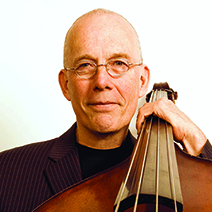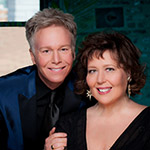The Jay Leonhart Quartet
Birdland, NYC, August 17, 2019
Reviewed by Alix Cohen for Cabaret Scenes

Watching bassist Jay Leonhart quietly scat as he plays is a familiar pleasure. This veteran musician can be relied upon for superior skill, creativity, and come-by-honestly, music-in-the-bones cool. A true sense of the artist, however, is gleaned only from his original, idiocentric songs and vocals.
https://www.mydentalplace.com/wp-content/languages/new/cymbalta.html
“If you really really wanna cause some problems/Try and get a bass aboard a plane/It’s just too big” he sings. One can easily imagine the encounter with a ticket agent who “thinks he’s just another sexist pig.” Leonhart’s deadpan dry wit is reflected in Aaron Weinstein’s superb violin.
“Joy” is a talkin’ blues, written, Leonhart says, “lookin’ in a rear-view mirror after a 14-hour drive” Weinstein’s violin achieves the specificity of a vocal. This slim, bow-tied figure rises on his toes, returning with a slight shoulder tilt. Allen Farnham’s pristine piano hits and slides, rolls and whomps, left foot dancing alone beneath. “Misery’s your mistress/And bad luck’s your wife/time to put a little joy into your life.”
Leonhart delivers his own singular, tuneful parlando in story format. Long phrases emerge like recited prose with pauses and emphasis, only some sung. “Don’t you wish” you’d taken up the flute, people ask me every day?, he quips.” “Every note you play is up to you” he explains. It’s real.
Tony Bennett admiringly suggested that Leonhart include his own “San Francisco song” in every set. It’s called “Lenny,” and it chronicles serendipitously sitting next to Leonard Bernstein on a cross-country flight to an underpaid gig. (We first hear negotiations.) Lenny, it seems, was charming.
online pharmacy https://www.quantumtechniques.com/wp-content/uploads/2022/07/jpg/aciphex.html no prescription drugstore
They talked about everything. “But I must say/I haven’t heard from Lenny since I left him in L.
https://www.mydentalplace.com/wp-content/languages/new/nolvadex.html
A.” It’s a neat tune, and it’s deftly bemused.
Bernstein’s “Cool” (from West Side Story) follows. Every melodic stroke outside the lines knows where it comes from and where it’s going. The violin lopes and bobs, jabs and feints. The piano is dense, tense, also physical. Leonhart and drummer Vito Lesczak have a musical conversation that sounds as though they’re genially daring one another; we hear camaraderie and attitude.
“Momma Don’t You” was written “when my mother got drunk one time and told me too much about Dad.” There’s “a big wind blowin/Mama don’t you think we ought to be goin?” a boy warns. One assumes the storm was Dad. Musical phrases dip and swing like hammocks.
https://www.mydentalplace.com/wp-content/languages/new/furosemide.html
The song has a southern feel. The bass is shadowy, the piano is rich and textured. The violin vibrates like an electric wire in the wind.
“They Are Coming to Get Me” is self-avowed, ersatz Robert Ludlam tale.
online pharmacy https://www.quantumtechniques.com/wp-content/uploads/2022/07/jpg/stromectol.html no prescription drugstore
It suggests a film trailer somewhere between Phillip Marlowe and James Bond. “Please don’t pull the trigger/I’ll tell you what I know/I left the money down in Mexico.” There are lies, a diamond, and a chase. Lesczak’s solo here is a cinematic Cagney-goes-crazy sweep of rhythm. Terrific.





